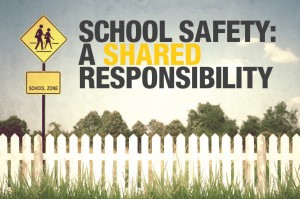The most important consideration towards accomplishing our stated mission is the health and safety of our students, staff, and other members of our school community. Here are the strategies that we intend to pursue toward this aim in the current year (short-term), next year (near-term), and in the next 3-5 years (long-term):
Strategy 1 Promote standards-based school counseling and mental health programs to promote student success and to integrate social, health and other services through interagency collaboration.
- Short-term: Develop a School/Community Health Task Force to create a strong Community Schools model as identified by the Coalition for Community Schools.
- Short-term: Community Schools grant through 21C to extend learning time and integrate student and family services.
- Near-term: Conduct a counseling program evaluation and align practice with national standards.
- Long-term:The SOCSD Health Agenda 2021 will address eight components of coordinated school health: nutrition, mental health services, physical activity, direct health services, family/community/staff involvement in healthy activities, safe and healthy learning environments, mental health wraparound teams and support.
Strategy 2 Improve security and prevention efforts to ensure students, staff and visitors are secure while on District campuses.
- Short-term: School site emergency plans reviewed and exercised annually.
- Short-term: Partnerships with law enforcement, Rockland County Emergency Management and Rockland BOCES will be continued to provide well-coordinated prevention and response systems.
- Near-term/Long-term: Upgrades to existing physical plant as a result of Building Condition Survey and 5-Year Capital Plan.
Strategy 3 Implement behavioral interventions and conduct a climate survey to identify areas of student risk.
- Short-term: Using resources from the National School Climate Center (NSCC), SOCSD DLT and BLTs will set in motion a school community-wide process of understanding specific strengths and needs, and further improvement efforts concerning SCHOOL CLIMATE. The Comprehensive School Climate Inventory (CSCI) is a multi-dimensional needs assessment that provides immediate feedback on how each population perceives the school environment. The findings are presented in a customized report that includes concrete data, easy-to-read graphs and presentation tools. This detailed report aids in the analysis process, encourages collaborative dialogue, and supports the creation of an action plan to address specific issues within the school.
- Near-term: NSCC provides a full range of support materials and on-staff guidance to schools as they work through the process to ensure success.The full CSCI section can be viewed at: http://www.schoolclimate.org/index.php/programs/csci/, and you will find sample surveys, research details, and report information here.
- Long-term and Continuous Action Planning in the areas of:
- Physical Safety
- Social-Emotional Safety
- Support for Learning
- Social & Civic Learning
- Respect for Diversity
- Social Support—Adults & Students
- School Connectedness/Engagement
- Physical Surroundings
- Leadership and Professional Relationships
- Social Media
